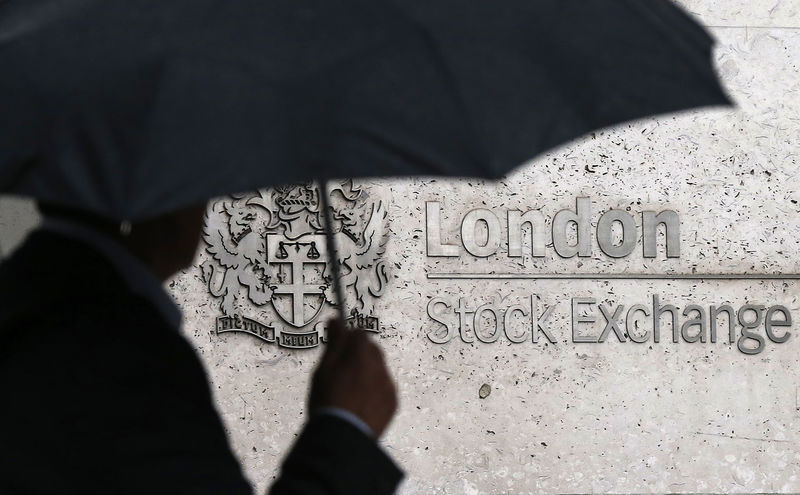By Kit Rees
(Reuters) - Top share index fell on Friday, led lower by a drop in housebuilders after weak UK construction data for July, and by struggling supermarket operators.
Official data showed a surprise dip for construction in July, reversing a bounce seen in June, after the biggest annual fall in house-building in more than two years.
Construction output fell by 1.0 percent on the month, bucking economists' forecasts of a 0.5 percent pick-up after an unrevised 0.9 percent rise in June.
Taylor Wimpey (L:TW), the residential housebuilder, fell 0.8 percent, as did real estate firm British Land Company (L:BLND), down 1.7 percent.
That followed the publication of two surveys on Thursday saying British house prices rose strongly in August, pushed up by a lack of property coming onto the market.
Britain's FTSE 100 (FTSE) ended 0.6 percent lower at 6,117.76 points, with investors displaying caution ahead of a U.S. Federal Reserve meeting next week to make a decision on interest rates.
"The fact that we haven't been able to hold on to the gains that we've seen in the first part of the week suggests that I think investors remain very unsure," said Michael Hewson, chief market analyst at CMC Markets UK.
He said it would be difficult to get a clear idea of the direction stocks would take ahead of the Federal Reserve's meeting.
British grocers were under pressure, with WM Morrison (L:MRW) down 3.3 percent following a target price cut by UBS on the back of Thursday's slump in profits.
Analysts at Barclays (LONDON:BARC) said in a note that the limited growth opportunities in the supermarket sector will be hard-fought, and that Morrison "must now generate real volume growth rather than relying on adding or maturing space".
Fellow grocers Sainsbury (L:SBRY) and Tesco (L:TSCO) both fell 2.3 percent.
Miners led the gainers, with Rio Tinto (L:RIO) rising 0.8 percent on a broker upgrade from UBS to "buy".
Glencore (L:GLEN) was up 0.7 percent as spot iron ore prices posted a weekly gain of nearly 5 percent to their highest level since July.
Anglo American (L:AAL), up 0.2 percent, is likely to be the next mining firm to follow Glencore's example in cutting its dividend to help contain debt levels and preserve cash amid a global commodity market slump, analysts and bankers said.
Glencore, weighed down by net debt of $30 billion and hurt by declines in the prices of its main copper and coal products to six-year lows, this week suspended dividends and said it would sell assets and raise $2.5 billion in a share sale.

The FTSE 350 mining sector index (FTNMX1770) closed 4.8 percent higher for the week. The index reached six-year lows three weeks ago.